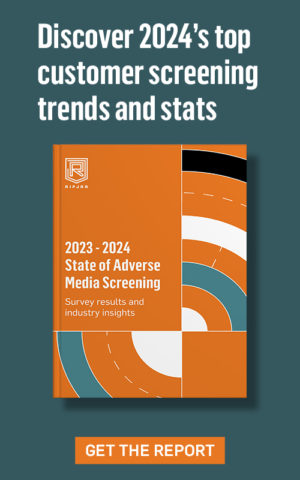The Financial Conduct Authority (FCA) is an independent regulatory body responsible for overseeing the UK’s financial markets and services. Established under the authority of the Financial Services Act (2012), FCA was introduced on 1 April 2013, replacing its predecessor, the Financial Services Authority (FSA). FCA shares its regulatory responsibilities with the Bank of England’s Financial Policy Committee (FCP), and the Prudential Regulatory Authority (PRA).
What does the FCA do?
The FCA oversees over 51,000 financial service providers in the UK including banks, financial advisers, and mutual societies. In its oversight role, the FCA has three objectives:
- To protect consumers of financial products
- To enhance the integrity of the UK’s financial industry
- To ensure effective competition between UK financial service providers in the interests of consumers
In order to achieve its stated objectives, FCA has a range of duties and powers, including investigating financial services providers that violate the UK’s compliance regulations – principally the Money Laundering, Terrorist Financing and Transfer of Funds Regulations 2017 and the Proceeds of Crime Act 2002 (POCA). In practice, the FCA’s responsibilities include:
- Authorization: The FCA is responsible for authorizing banks and financial service providers to operate in the UK. In order to obtain an operating license, organizations must submit an application to the FCA demonstrating that they have met a set of regulatory criteria.
- Supervision: The FCA supervises UK banks and financial service providers against a ‘framework of principles and rules’ in order to protect consumers and financial markets from harm.
- Enforcement: Where compliance violations are found, FCA has the power to force firms under its jurisdiction to change the way they do business, impose remedial requirements, and issue significant financial penalties. The FCA’s enforcement powers take in criminal and civil measures, and include:
- Prohibition of firms and individuals from carrying out regulated activities
- Fines for firms and individuals found to have violated compliance regulations
- Criminal prosecution against firms and individuals suspected of financial crimes
- Publications or public announcements of disciplinary actions
FCA Rules and Regulations
The FCA has issued a list of conduct rules for both firms and individuals to help them comply with the UK’s financial crime laws, including the Money Laundering Regulations and the Proceeds of Crime Act. The conduct rules are set out in the FCA Handbook and comprise two tiers, one for individuals and one for senior managers working within the financial services industry:
Tier one: individual conduct rules
- You must act with integrity
- You must act with due care, skill, and diligence
- You must pay due regard to the interests of customers and treat them fairly
- You must observe proper standards of market conduct
Tier two: senior manager conduct rules
- You must take reasonable steps to ensure that the business of the firm for which you are responsible is controlled effectively
- You must take reasonable steps to ensure that the business of the firm for which you are responsible complies with the relevant requirements and standards of the regulatory system
- You must take reasonable steps to ensure that any delegation of your responsibilities is to an appropriate person and that you oversee the discharge of the delegated responsibility effectively
- You must disclose appropriately any information of which the FCA would reasonably expect notice
How to Comply with FCA Rules
The FCA expects banks and financial service providers to develop solutions to ensure that they operate in compliance with the UK’s financial crime legislation. In practice, this means that UK firms must implement a range of measures and controls, backed by financial intelligence technology, to detect and assess the criminal risks that they face. These should include:
- Customer identification: UK firms should perform suitable due diligence on their customers to accurately establish and verify their identities and the nature of their business.
- Transaction monitoring: UK firms must monitor their customers’ transactions for signs of financial crime, including unusual transaction patterns, and transactions with high-risk counterparties or jurisdictions.
- International sanctions: UK firms must screen their customers against the relevant sanctions lists, including the UK’s autonomous sanctions list, and international sanctions lists such as the UNSC consolidated list.
- Politically exposed persons: UK firms should establish whether their customers are politically exposed persons (PEP) – and therefore pose a greater risk of financial crime such as money laundering.
Adverse media stories: UK firms should screen regularly for adverse media stories that involve their customers. News media may signal a customer’s involvement in financial crime prior to confirmation by official sources.
Recent FCA Activity
Throughout 2021, the FCA focused on addressing the concerns of a changing financial landscape, and the criminal threats that emerged as a result of the Covid-19 pandemic. Amongst the initiatives that it launched in 2021, were the InvestSmart campaign and the Scamsmart campaign, both intended to protect consumers from fraudulent financial activity, including investment scams and cyber-crime.
The FCA is also focusing on corporate AML compliance and issued a series of significant fines throughout 2021. Notable examples of FCA AML compliance fines in 2021 include a £147 million fine for Credit Suisse, a £63.9 million fine for HSBC, and a fine of over £264 million to NatWest.
The FCA is currently working to raise awareness of the dangers posed by cryptocurrencies and ensure cryptocurrency service providers operate in compliance with the UK’s financial regulations. That effort saw 223 FCA registration applications from cryptocurrency service providers in 2021 and, in January 2022, an FCA proposal for a regulatory crackdown on high risk cryptocurrency investments.









